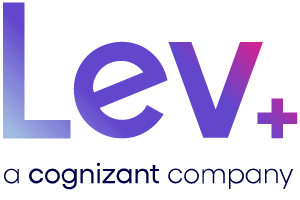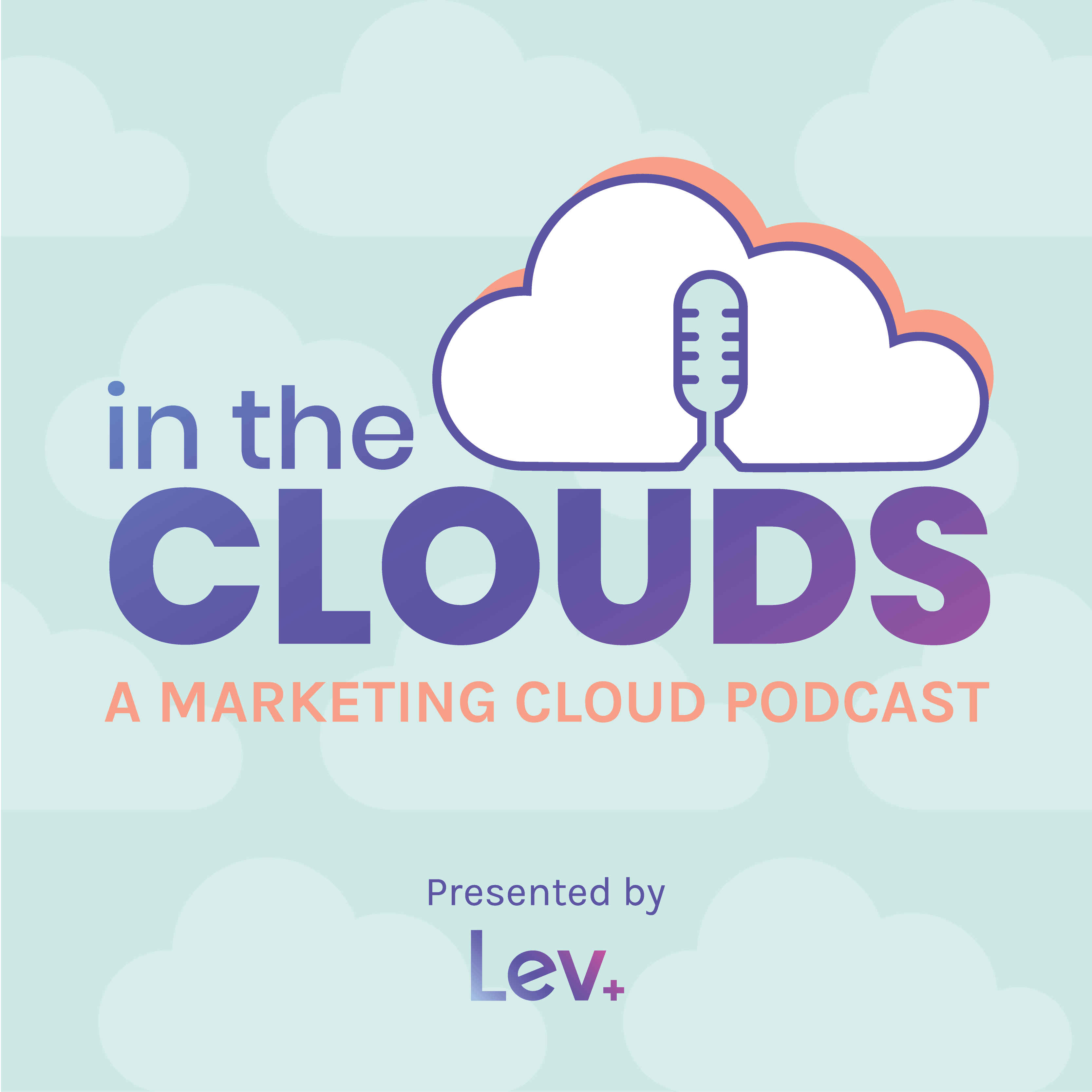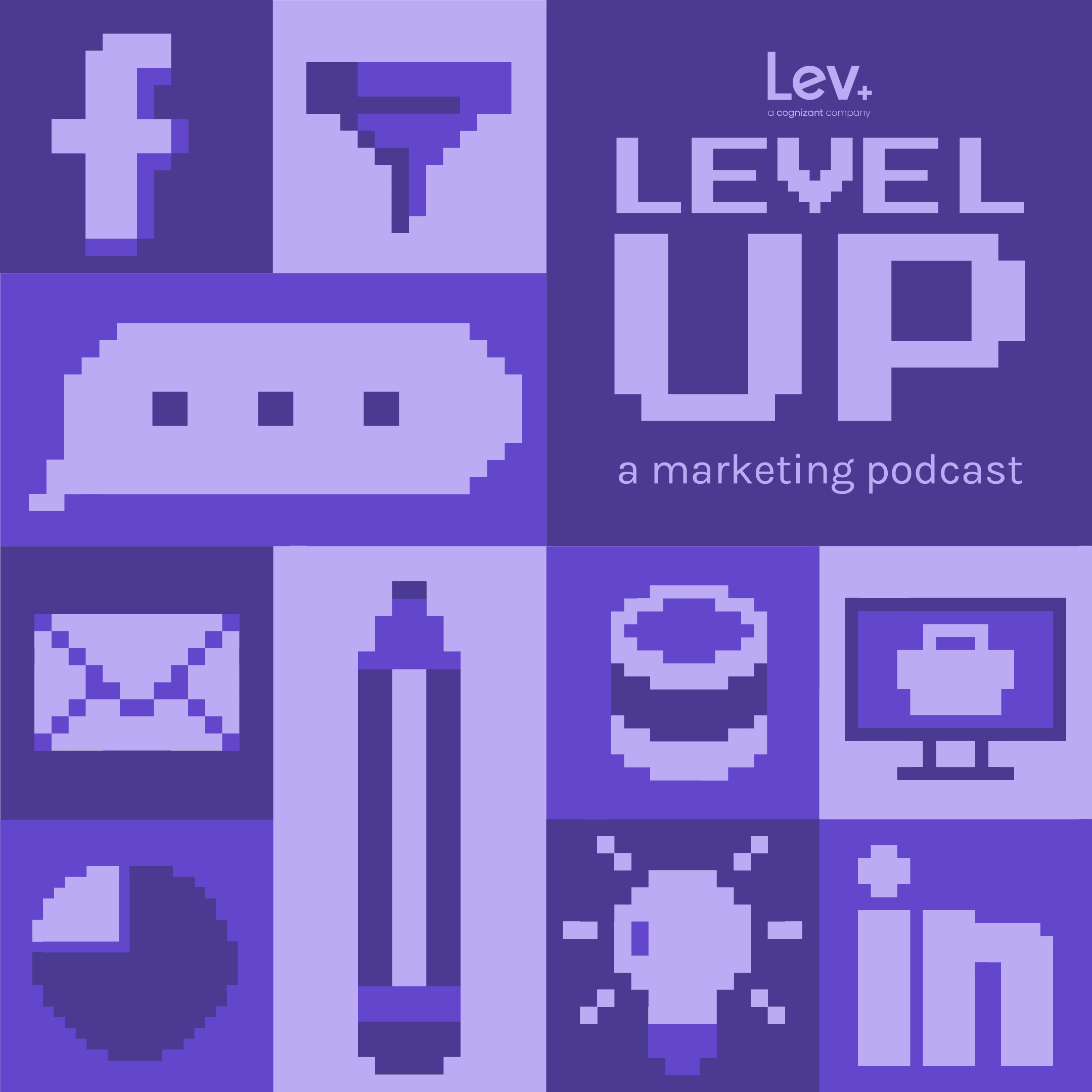Unique ID 101
- 0.5
- 1
- 1.25
- 1.5
- 1.75
- 2
Intro: Welcome to the In The Clouds Podcast. In The Clouds is a Marketing Cloud podcast powered by Lev, the most influential marketing- focused Salesforce consultancy in the world. Lev is customer- experience obsessed and podcast host Bobby Tichy and Cole Fisher have partnered with some of the world's most well- known brands to help them master meaningful one- on- one connections with their customers. In this podcast, they'll combine strategy and deep technical expertise to share best practices, how- tos, and real- life use cases and solutions for the world's top brands using Salesforce products today.
Bobby Tichy: Welcome to the In The Clouds Podcast. Before we get started, just a brief reminder that you can always reach out to us at intheclouds @ levdigital. com. If you have any questions that you might have, or topics or ideas for us to cover on our future podcast, we always appreciate the engagement, the responses. Today we're talking about something that almost is part of the beginning of every implementation or migration that we have in the Salesforce Marketing Cloud, and that's about what's going to be the unique identifier in Salesforce Marketing Cloud. So for those who have or are considering implementing the platform, identifying the unique ID to use to manage the contacts can be a tough decision, but it's an extremely important one that we'll talk through today. So Cole, as we think about identifying the unique ID, what are some things to think about and who's really impacted by having this unique ID in Marketing Cloud?
Cole Fisher: Well, when we talk about who, it's absolutely everybody. So, one of the very first things we have to do is regardless of what channel or channels that we're using, every customer of Marketing Cloud has to have a unique user ID for their contacts. So, the reason that is because you have to be able to build out in Marketing Cloud, that relational data model. So as we add on additional data in the future, as we have updates, as we have new channels and things like that, that may be introduced to us, everything has to correlate back to what this unique identifier is. The reason we want to identify that as early as possible, like during discovery phase, is because we've been doing this long enough to see this multiple times. A lot of the times when we're introducing a new technology or having another system or something like that that's going to be communicating with Marketing Cloud, or we add business units or something like that, it changes the way we look at the unique ID. It can just be a big hurdle for the customers when we have to rethink what that unique ID is. So, a lot of the times we have to do what we call the subscriber key migration. If we use something like email address for the longest time, as long as we've had Marketing Cloud set up, and then we introduce CRM, say we're bringing the Sales Cloud into the mix or something, then that's when we start to confuse our ability to talk about context in between two systems. So, we have to do this subscriber key migration. There's two ways to do that. You either have Salesforce services come in and essentially mandate some downtime for Marketing Cloud. That can be not only costly from just the need to have downtime, but just an expensive service to begin with, and then really updating all of those records to have a new contact ID, or we can actually take that subscriber key migration, do a fluff version, kind of a homemade version if you will, where we don't actually have downtime. It's a more affordable route to it but at the same time, we have to backup that historical data in a data warehouse or something like that. Neither of these is really ideal, that's why we want to identify what a unique ID is right out of the gate. So right when discovery starts, we're talking about what is that unique identifier? Where's that being persistent from other systems and how's that going to be used in Marketing Cloud?
Bobby Tichy: Yeah, for sure. As we think about what folks use for their unique identifier and subscriber key, there's a lot of things to take into consideration. One thing is that all facets of the platform require this unique identifier, especially as we start thinking about contact builder and omni- channel messaging. A couple of things that when we think about pros and cons of having email addresses, unique ID, is you don't typically want to use a changeable data point as a unique ID. So for example, when a contact's email address changes, you've got two data points on that contact record in Marketing Cloud, the unique ID or subscriber key, along with their email address. When their email address changes, their unique ID is still going to be their old email address. So, it just makes it really hard to keep track of that record. The other option there is a completely new contact must be created, because we're utilizing that email address as subscriber key, which then use all contact history and engagement from previous. The other element there too of why it's typically not a good idea to use email addresses' unique ID is for household messaging. So if the email address is the unique ID, you've got essentially one email address for many contacts, which really limits your ability to communicate with people within that household on a personalized basis. So if my wife and I are both customers of a particular company, but they want to message to us in a particular way, they may want to combine us for some of those communications or they might want to keep us separate. To combine those messaging would be really difficult by having email address that are unique identifier. For a contact who has multiple email addresses, so let's say that I've got my Gmail address in there, I've got my Lev address in there, and I've got my Yahoo address in there. Because I've got multiple products... A good example of this is in the financial services industry where maybe I'm using my Gmail for my checking and savings, I'm using my Yahoo for my mortgage and I'm using my Lev digital for my retirement accounts. It's really hard to keep track of who that consumer or customer contact is, whereas if we just have a unique identifier, then it allows us to marry all of that data up together under one record instead of having three different ones.
Cole Fisher: Yeah, and that sounds like it's a rare use like," Oh, well I'm not in fence." The fact that it is like even anything account- based marketing, education especially, crosstalk Especially like student logins, email addresses and personal emails, things like that, that's actually a really, really common commonality across a lot of customers and a lot of different industries. So it's not just fins and isolated use cases. That's really, really common for us.
Bobby Tichy: It really goes back to your data management strategy as well. Because even if you're just on a run of the mill B2C site, maybe you forget what your log in is. You just get frustrated, you don't want to do the forget password thing, just use a different email. So it behooves you as an organization or a company to not use email address as the unique identifier, and also consistently look at your data management strategy to make sure you're combining some of those different records. So if your organization doesn't have any other unique ID, then using email is typically the easiest and quickest path. The main use cases we see here are if the organization is small and Marketing Cloud is their true system of record, this is more rare than it is common, but that certainly does happen. If there's no single unique ID across all of your different systems that end up feeding data into Marketing Cloud, Marketing Cloud should not really be used as a true CRM. And so if we have different unique identifiers across three or four different data sources, an email address might be the best case scenario to try to bring most of that data together within the platform. And then lastly, if there are a lot of duplicate records and that unique ID hasn't really served its intended purpose, maybe it was implemented a while back but it hasn't really been adopted internally across your tech stack, that might be a good use case for email address to be used as the unique identifier. So not saying that it can't be used, but typically we don't recommend it. And those were a couple of situations where it may make sense. But Cole, what are some examples of actual unique identifiers that we typically recommend or typically see?
Cole Fisher: So yeah, you mentioned the email address, but it's also really common to see account ID or a client ID just like that is already persisted to us especially in an instance where if you're a power Salesforce user, you have Marketing Cloud, you have sales and service, things like that. We may be inheriting that ID from another system. So if you have sales and service cloud, it's generally the best practice to have the Salesforce ID establish and house those contacts, and then pass that into Marketing Cloud. And so we just use that Salesforce ID, that way they speak the same language. Same thing with a data warehouse. You may have a data warehouse ID or a CDP or something like that, that actually houses a certain idea or a contact key that that's being persistent into Marketing Cloud, as well as also email hash. And so a lot of the times, if we're worried about encryption and insecurity, we may just use a simple user hash that corresponds to a specific email user or, or channel user.
Bobby Tichy: Yeah, for sure. And as we went through this, a big shout out to a lot of live team members who... This podcast came as inspiration from a Slack thread that we had here at Lev a couple of weeks ago, because it's something that, like I mentioned at the beginning, we're all talking about all the time with our customers and companies about what should be used as unique ID or subscriber key. And so a big shout out to Andrew Alford who started the conversation and started the thread. And then a lot of contributions from team members here, including Austin Lee, Eric Gustafson, Scott Olin, Brian Asham, Liz Lewis, Steven Rosenfeld, and Don cliff. Thank you all for your contributions here.
Cole Fisher: Yeah. Generally speaking, if you hear good ideas or intelligent insights coming from Bobby and I, it's definitely not us that's originated these ideas. It's like really good conversations or really smart people at Lev who have given us ideas or that we've talked to and learned from.
Bobby Tichy: Yeah, for sure. And I guess this goes to the kind of brain power that we have, so-
Cole Fisher: Yeah. Let's get it more our natural sphere too well.
Bobby Tichy: Yeah. The completely unrelated topics are always our ideas. So you can probably tell our IQ level based on those. So today's is, is a hotdog a sandwich?
Cole Fisher: It's oldest time, this question. No. The very clear objective answer is just, no. It's not inaudible or those two slices of bread. It's not a sandwich, not separate. If you're just going to say anything with bread is a sandwich, then you're just taking crazy pills. It's not a sandwich. If you disagree, I would highly recommend getting a hold of some of the smart people at Lev that can defend this better than I can, because like I said, I'll steal ideas from them. I assume they agree with me. If they disagree, I'm probably just wrong then.
Bobby Tichy: Well, after doing a quick Google search, according to the Google machine, hotdogs have been around since 1871, which is actually longer than I expected. They've been around a long time.
Cole Fisher: When was the sandwich around?
Bobby Tichy: Oh, that's a good question. When were sandwiches invented? 1762. That's tough. I agree with you. No. I don't have any good reason as to why other than-
Cole Fisher: It can be inspired by the sandwich, but it's not a sandwich.
Bobby Tichy: I think that's fair. Yeah. How do you eat your hot dogs?
Cole Fisher: Usually with my hands. With your hands? If I'm simple at home, it's usually a mustard and I like classic pickle slice. It's just something crosstalk
Bobby Tichy: Okay. I think we should probably go ahead and take one then.
Cole Fisher: If I'm at a ball game, I can actually go no condiments, just regular old ballpark dog. I can do that or toss a little mustard on that. If I'm doing some fancy Bars Mc Grill or something like that. That's my version of fancy.
Bobby Tichy: Bars Mc Grill, in a [ inaudible 00:13: 20 ].
Cole Fisher: Then we could get into sauteed onions, peppers, things like that and that's pretty delicious. We're talking raw onions. You're not talking to me because your breath is heinous.
Bobby Tichy: See, I love raw onions. Raw onions and mustard on a hotdog. Although I also like the Chicago style hotdog with pickle slice, the relish. But it's something about I like being in Chicago when I have that. Do you remember when you were younger, did your parents ever get the cheese filled hotdogs?
Cole Fisher: Yeah. The ones that scald your mouth, as soon as you bite into them?
Bobby Tichy: Because the cheese is so hot. I loved those, but you can't really put toppings with the cheese. It didn't-
Cole Fisher: Yeah. I don't think I really appreciate them because it felt like a sneak attack. I wasn't ready for that. I thought this was a dog. I thought I knew what I was getting into. It's kind of like when you're not paying attention to something and drink and you thought you were drinking water and you're just like," Oh, God. What is this flavor? What are all these bubbles?" You know?
Bobby Tichy: Yeah.
Cole Fisher: I don't appreciate the sneak attack. So I never really like enjoyed the cheese dogs.
Bobby Tichy: Well, if you've learned nothing else from this podcast, it's that hotdogs are not a sandwich and we encourage you to prove us wrong.
Cole Fisher: And I'm starving.
Bobby Tichy: I know. Me too. Thanks for listening and we'll catch you next time.


